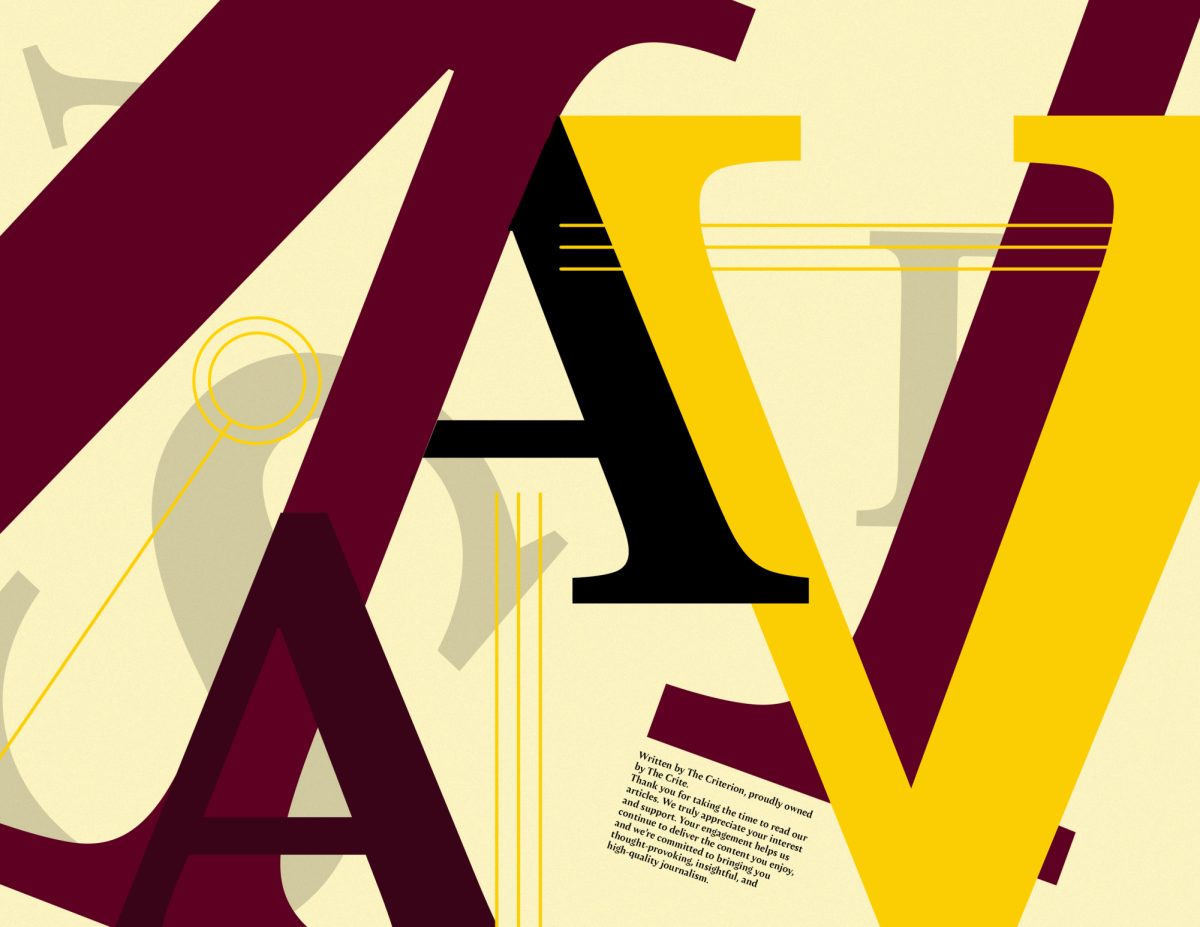Recently there have been a number of attempted letters to the editor. Some have been published after the authors made their own edits and some never made it to publication because the authors were unwilling to rework and resubmit their letter. To save everyone time, this editorial is going to serve as an informative guideline for how to submit a letter.
We do not print anonymous letters. We allowed one anonymous letter to be published and were cautioned by our sage advisor, Denny Herzog, to discontinue that practice. Herzog has many years of newspaper experience and, when we choose to act wisely, we follow his counsel.
Anonymous letters open The Criterion up to scrutiny and questions of validity. It’s just not worth it for us. We applaud authors that want their voices heard; we just require those authors to believe in their message strongly enough to attach their name.
Letters must be 500 words or less. Sometimes authors are passionate about their message, and that passion turns their letter into a novel. Our readers, however, aren’t likely to read a long-winded rant. For our space and our readers’ time, the limit is non-negotiable.
We do not edit letters to the editor. More than once we have been attacked for publishing letters with many grammatical and spelling errors. However, The Criterion’s stance is that editing the letters is not ethical.
Altering the content of a quote violates journalistic ethics. A letter to the editor is essentially a long quote. Editing the letter is altering its content. It is therefore, the author’s responsibility to submit an edited letter. The Criterion is not responsible for the criticism poorly written letters receive from our readers.
No profanity. Profanity is only acceptable in our product when it is a quote that directly supports the main idea of an article. With rare exception, there’s no reason for profanity in a letter to the editor.
No discrimination, calls to violence or inflammatory content. The Criterion believes strongly in freedom of speech and does not believe in silencing voices even when they disagree with us. There is, however, a difference between free speech and hate speech. There is also a difference between free speech and a call to action.
We do not tolerate hateful rhetoric and will never support content that attempts to move our readers to violence. Civil disagreement, on the other hand, is both fine and encouraged.
Please provide a headline. Ordinarily, we prefer to have editors assign all our headlines. In the case of letters however, we prefer to have the author supply the headline. This is to avoid accusations of misrepresenting the message. Without a headline provided, we will supply one.
Hopefully, this will make it easier to submit letters to the editor without the need to rework and resubmit. We look forward to hearing your voices and supplying a sounding board to all our fellow Mavs.








